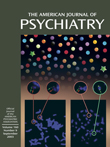In this valuable book, Rosenthal gives us a compendium of needed, useful information on the affective disorders and associated emotional conditions. The subtitle of the hardcover version of the book (
How the New Science of Feelings Can Transform Your Life) is different from that of the paperback version (
Transform Your Life Using the New Science of Feelings). The “emotional revolution” is seen as a paradigm shift similar to that described by Thomas Kuhn in
The Structure of Scientific Revolutions (1). For the emotions, that shift is based on the following five propositions: 1) Emotions are critical survival mechanisms that have survived through many millennia. 2) Emotions are processed in the brain by specialized circuits that anticipate, evaluate, and respond to reward and punishment, and the rest of the body is involved. 3) The relationship between emotions and memory is now understood. 4) Although intelligence has long been considered an intellectual function, the concept of emotional intelligence is also gaining acceptance. 5) Emotions profoundly affect physical health and can even make the difference between life and death.
After providing evidence for “the intelligence of emotion” and the “anatomy of feeling,” along with the thesis that emotions can kill or cure, in part 2 Rosenthal presents five chapters on specific “feelings”: fear and anxiety, anger and rage, love and lust, sadness and depression, and happiness and euphoria. Each contains a summary of pertinent data and an erudite discussion of relationships between that particular feeling and health, illness, and well-being/emotional distress.
Many of the discussions include specific guidelines on, for example, dealing with an angry child or adolescent, along with valuable clinical suggestions such as the five presented for recovering from trauma and posttraumatic stress disorder. The chapter titled “Love and Lust” is fascinating. It begins with an excerpt from Lady Chatterley’s Lover and discussions of “the molecules of desire,” “viva la difference,” “the science of being gay,” “eros: the power of romantic love,” “love, health and survival,” “the many shapes of love,” and “monogamy: monopoly or monotony?” The ensuing chapters, “Sadness or Depression” and “Healing Depression,” are both insightful and clinically useful. They are followed by an innovative discussion of “happiness and euphoria.”
Part 3, Pathways to Change, includes an excellent two-page conclusion, suggestions for further reading, and useful appendixes. Many of the chapters are didactic but are highlighted by short, relevant clinical vignettes. In addition, many of the chapters contain valuable lists of clinical guidelines, and there are 684 selected references.
I found reading The Emotional Revolution enjoyable as well as educational. It absorbed 4 or 5 hours of my reading time for six evenings, and, obviously, I recommend it highly.

